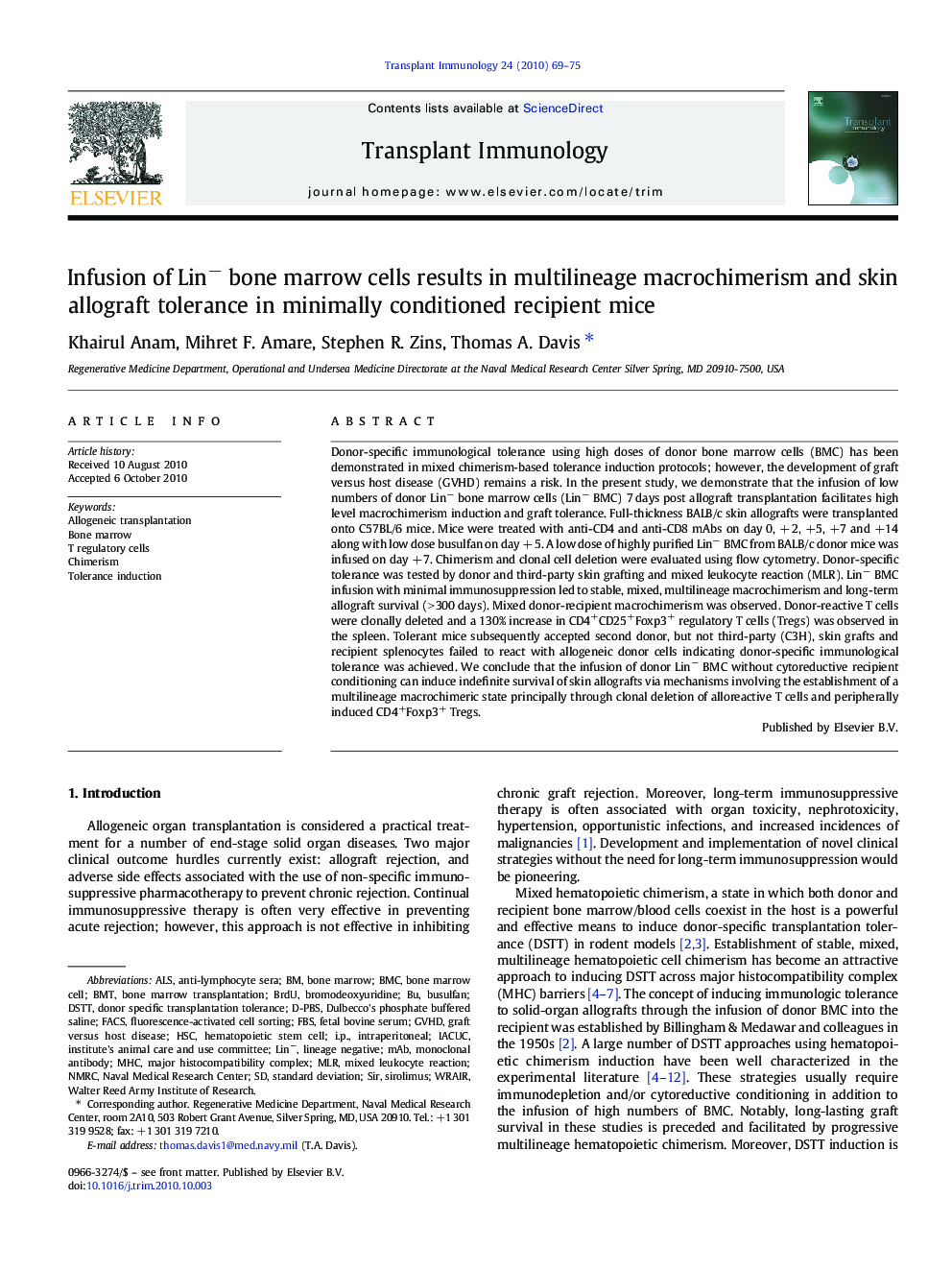| Article ID | Journal | Published Year | Pages | File Type |
|---|---|---|---|---|
| 3392219 | Transplant Immunology | 2010 | 7 Pages |
Donor-specific immunological tolerance using high doses of donor bone marrow cells (BMC) has been demonstrated in mixed chimerism-based tolerance induction protocols; however, the development of graft versus host disease (GVHD) remains a risk. In the present study, we demonstrate that the infusion of low numbers of donor Lin− bone marrow cells (Lin− BMC) 7 days post allograft transplantation facilitates high level macrochimerism induction and graft tolerance. Full-thickness BALB/c skin allografts were transplanted onto C57BL/6 mice. Mice were treated with anti-CD4 and anti-CD8 mAbs on day 0, + 2, +5, +7 and +14 along with low dose busulfan on day + 5. A low dose of highly purified Lin− BMC from BALB/c donor mice was infused on day + 7. Chimerism and clonal cell deletion were evaluated using flow cytometry. Donor-specific tolerance was tested by donor and third-party skin grafting and mixed leukocyte reaction (MLR). Lin− BMC infusion with minimal immunosuppression led to stable, mixed, multilineage macrochimerism and long-term allograft survival (> 300 days). Mixed donor-recipient macrochimerism was observed. Donor-reactive T cells were clonally deleted and a 130% increase in CD4+CD25+Foxp3+ regulatory T cells (Tregs) was observed in the spleen. Tolerant mice subsequently accepted second donor, but not third-party (C3H), skin grafts and recipient splenocytes failed to react with allogeneic donor cells indicating donor-specific immunological tolerance was achieved. We conclude that the infusion of donor Lin− BMC without cytoreductive recipient conditioning can induce indefinite survival of skin allografts via mechanisms involving the establishment of a multilineage macrochimeric state principally through clonal deletion of alloreactive T cells and peripherally induced CD4+Foxp3+ Tregs.
